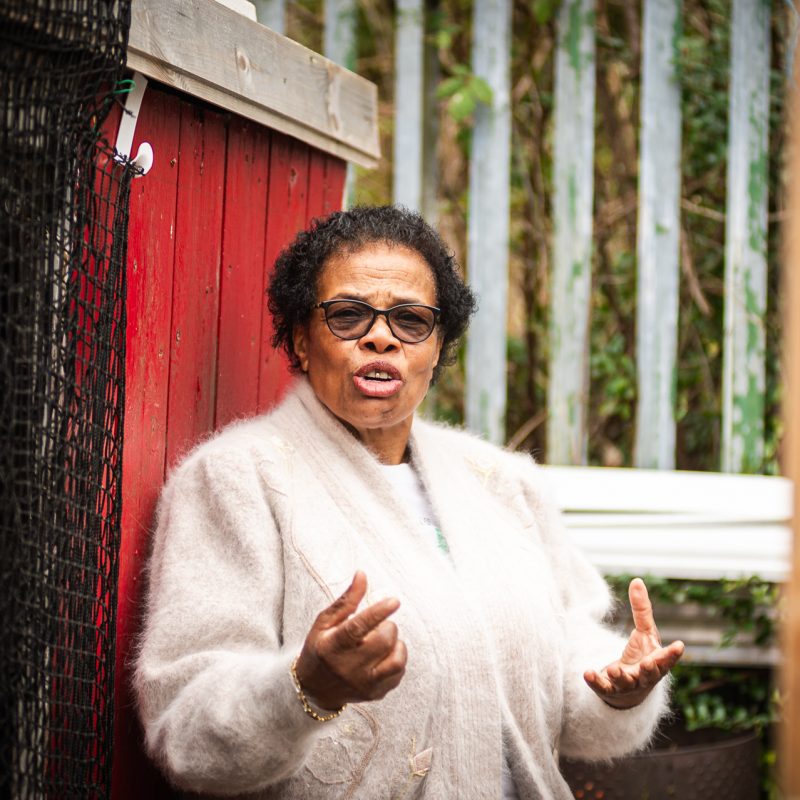During the UK’s second COVID-19 lockdown, poet Panya Banjoko worked with older members of Nottingham’s African-Caribbean community. To ensure the safety of all involved, Panya ran 1 to 1 workshops over the telephone.
The group transcribed & explained a number of ‘Old Time Sayings’, some in Jamaican Patwa, that they would like to share with the younger generations.
These films, edited by Melvyn Rawlinson, combine photos taken by Lamar Francois with video recordings of each participant sharing an ‘Old Time Saying’. The videos were self recorded during lockdown. Watch them below!
“Ah no everything good fe eat good fe talk ‘bout”
Shared by Bettina Wallace
“This was always something I heard my fraternal grandmother say especially when she heard people in the yard quarrelling. My understanding is that it means, there are somethings in life which you should keep to yourself. So, I have always kept personal things to myself.”
“Wanti wanti cyah geti and geti, gheti nuh wanti”
Shared by Victoria Williams
“This means those who really want something cannot get it and those who are always getting things do not want it. Do not take whatever you have for granted, count your blessings.”
“Don’t spare the rod and spoil the child”
Shared by Ethel Anderson
“This means if a child does something wrong they should be disciplined.”
“Don’t hang your hat higher than you can reach it”
Shared by Merlita Bryan
“This is a caution to not expand more than you can afford.”
“If you can’t hear you will feel”
Shared by Louise Garvey
“It means if you don’t heed a warning be prepared for the consequences. I used this saying quite a lot to my children because my grandmother used it quite a lot to me. I have however done my grandkids a disservice because I haven’t used ‘patwa’ (Jamaican vernacular) to them. I should have taught them ‘patwa’ but my generation took on board the negative feelings towards the language instead of feeling proud of it. It was much later in life that I began to be proud of it.”
“What is fe yu, can’t be un-fe yu!”
Shared by Pitman Browne
“This means ‘what is yours will always be yours.’ A well-known old saying from Elders during my Jamaican childhood starting from questions like, “liccle bwoy what would you like to be when you grow up?” I ended up asking myself the same question in one of my books entitled What Is My Mission?
I’m convinced that my passion for writing in a bid to become an Author has been well-answered even one of my sons is saying he would like to write a book one day. My inclination for classical piano is still strong after passing quite a number of piano exams in my lifetime so much so I’m convinced, ‘what’s fe yu can’t be un-fe yu!’.”
“Words of Wisdom”
A Poem by Panya Banjoko
Panya Banjoko wrote this poem which combines words of wisdom, sayings and adages. It is inspired by the 1 to 1 workshops Panya ran with the members of Nottingham’s African-Caribbean community, who contributed their words of wisdom to videos above.
About Words of Wisdom
City Arts’ Words of Wisdom project offered people aged 55+ a chance to take part in writing and poetry workshops. Run by professional writers, the workshops took place in community venues across Nottingham.
The project was supported by Nottingham City of Literature & Nottingham City Libraries. It was funded by Arts Council England and the Baring Foundation.
